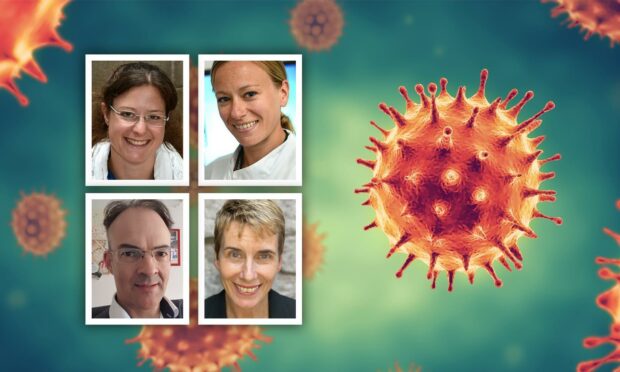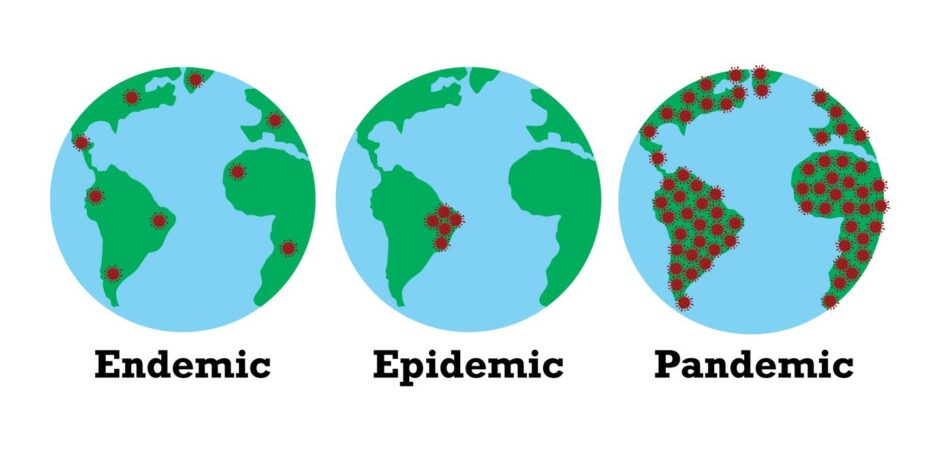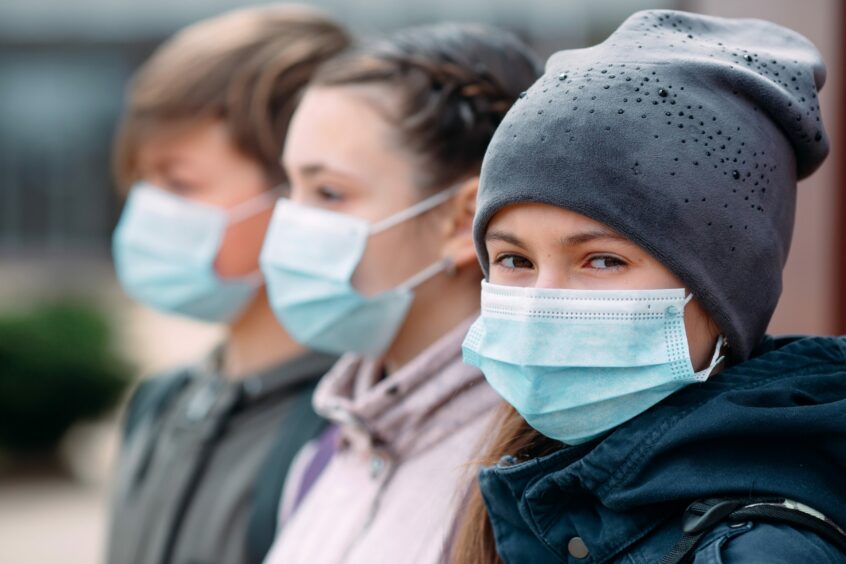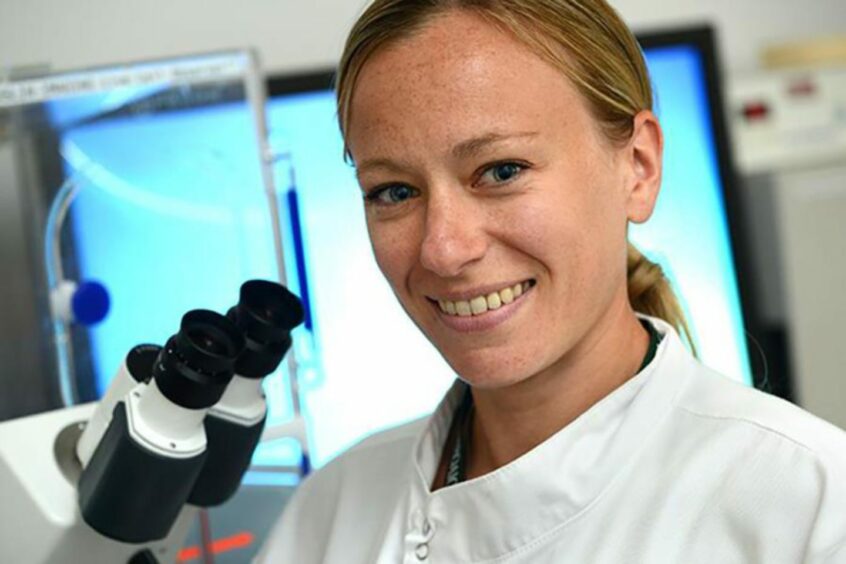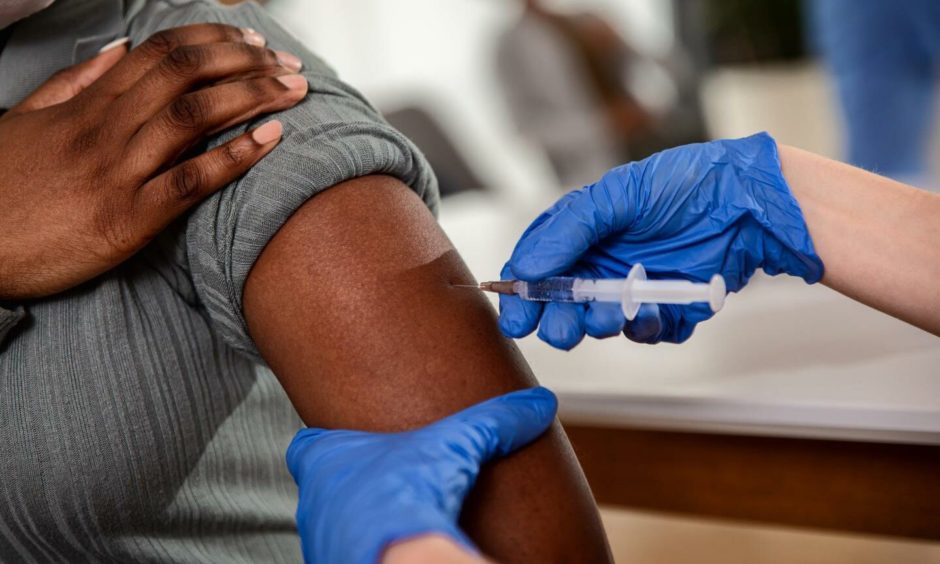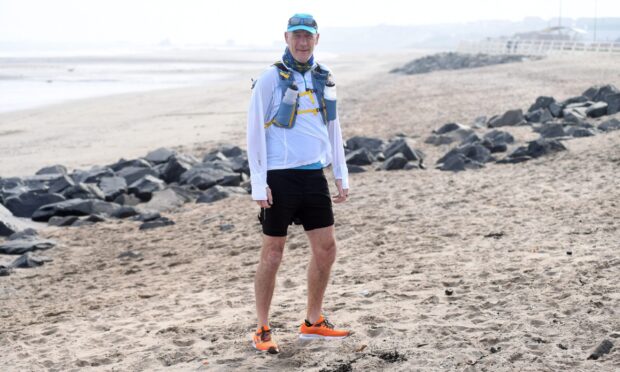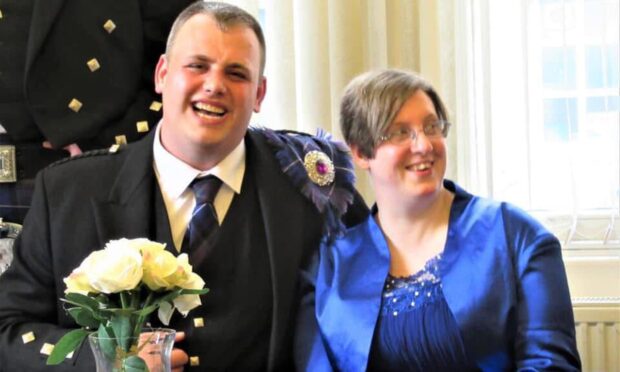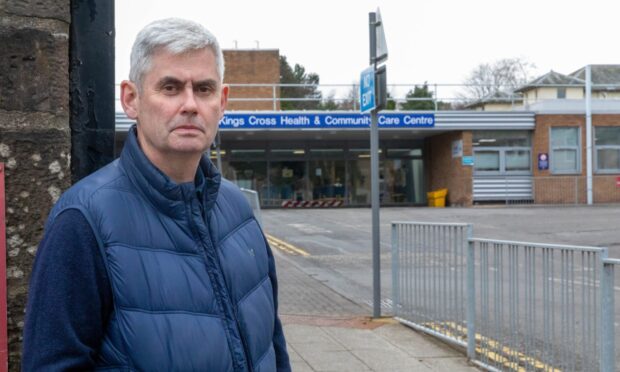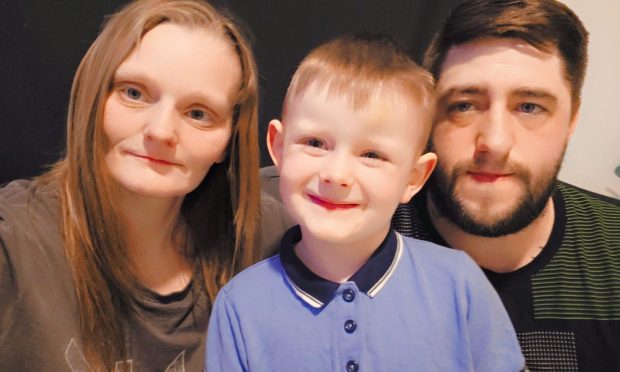The Omicron variant has led to questions around the end of the Covid-19 pandemic – and the virus becoming endemic.
This would mean, though coronavirus won’t disappear, it would become less transmissable and less severe for most people.
But what do Scotland’s leading experts think? Are we nearing the endemic stage of Covid? Or do we still have a long way to go?
We spoke to four experts, who have been advising on coronavirus throughout the pandemic, to find out their views on the future of the virus.
‘We’re definitely not there yet’
Says Jillian Evans, head of health intelligence at NHS Grampian.
“Endemic means levels of infection that stay roughly the same. They’re predictable and there are no big peaks or troughs. We don’t have that situation yet.
“We still have very high levels of infection and although they’re coming down, they’re still very high and variable in different parts of the country, in Scotland and England.
“We would be at an endemic state even if you had very high levels of infection but they were predictable and stable. That’s not where you’d want to be, but endemic means predictable and stable.
“Following the data, we’re not at that steady state yet.
“But we are entering really quite a different phase of the Omicron wave and there are really positive signs about Omicron.
“I think we’re working towards that endemic state – if that’s what the ambition is, to live with it, but we’re not there yet.
What do we need to do to get there?
“It is all about reducing the level of infection. That’s where it’s difficult, when a lot of people are hearing the rules changing and thinking we’re out of the woods.
“We’re not out of the woods and things could get worse before they get better if we’re not careful. But our protective individual measures have stood us in very good stead.
“So continuing to keep contacts manageable, keeping wearing masks, keeping your distance from others as much as possible.
“Don’t think it’s all over, just keep going, be pragmatic for a little bit longer. That will really help.”
‘We do not know where the finish line is’
Explains virologist Dr Elly Gaunt, Sir Henry Dale Fellow at Edinburgh University.
“What does endemic Covid look like? I interpret this as meaning the way the virus behaves is predictable.
“Other coronaviruses that infect humans in a predictable way cause the common cold, and circulate every winter.
“My guess is this is similar to what endemic Covid will look like, although it may cause more severe disease.
“When we can predict increases in Covid circulation, we will be able to roll out booster vaccines to high-risk individuals, and be ready with the highly effective drugs now available.
“I don’t think we’ve reached this stage yet; the variants we’ve seen so far have behaved quite differently from each other, and not in predictable ways.”
What will spring and summer be like?
“If we see a drop in virus circulation over the summer and mild respiratory outbreaks heading into winter, this may indicate the start of ‘endemicity’.
“It might not be this year; it could be next year, or the year after that.
“Attaining endemicity is not something we can control; this is about how the virus adapts to its new human host.
Nearing the endgame?
“High transmissibility and low disease severity are likely the endgame of SARS-CoV-2.
“The Omicron variant is certainly closer to this than other variants we have seen so far.
“However, we do not know how much more this virus can adapt to improve transmission; we do not know, nor can we predict, where the finish line is.”
‘We are entering endemic stage of Covid-19’
Explains Dr Christine Tait-Burkard, group leader at Edinburgh University and an expert on coronaviruses and arteriviruses.
“As the transition from pandemic to endemic is fluent, there will not be a specific moment we can point at. It’s just something that happens.
“We are very much in the process of entering the endemic stage of Covid-19.
“We are no longer suppressing the virus and it is going to stay with us for time to come at baseline level with likely seasonal spikes during the winter months.
What does the WHO say about the end?
“The World Health Organisation (WHO) will not declare it as over until the world is vaccinated and protected.
“But on individual country level, in the highly vaccinated, western countries, the endemic stage is coming on quickly.
“We now have over 97% of the population showing antibodies against SARS-CoV-2 and an infection that is declining without strong interventions.
“This allows us to live with this virus and reduce public health measures significantly and at unprecedented (and for some people frightening) speed.
“It is very likely we will have a summer with very little intervention measures.
“However, it is possible, and this is highly dependent also on how the virus evolves, some measures may return during the winter before being phased out again in spring.”
‘Transition could take years’
Says Prof Neil Mabbott, Chair of Immunopathology at Edinburgh University.
“I think it is too early to suggest we have entered the endemic stage just yet.
“Differing rates of vaccination and virus controls across the world, coupled with natural immunity achieved through infection, means different countries or regions will enter the endemic stage at different times.
“In the UK, we may be approaching the beginning of the endemic stage, but how long this transition will take is uncertain at this time.
“It could take a couple of years or so, to decades.
“Once the Omicron infection wave has passed it may be that the level of immunity in the population from vaccination and infection will be sufficient to keep virus transmission to manageable levels for the time being.
“But the emergence of other coronavirus variants of concern could delay this further.
“But readers shouldn’t assume that endemic means the virus should be considered mild.
“Malaria, for example, is an endemic disease responsible for hundreds of thousands of deaths a year, mostly in children, in affected regions of the world.
“The most important thing we should be doing now is to ensure there is equitable provision of vaccines across the world.
“Acting quickly to deliver all vaccines promised by rich countries to the rest of the world will help to limit the emergence of new variants.”
